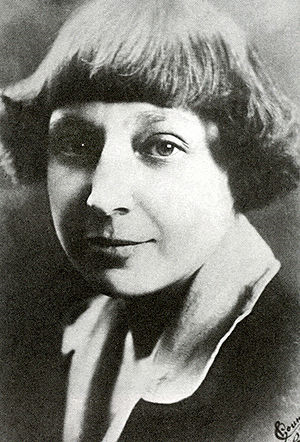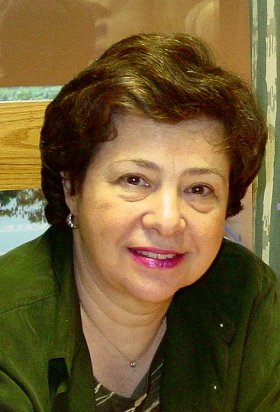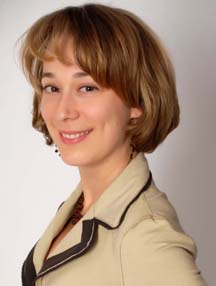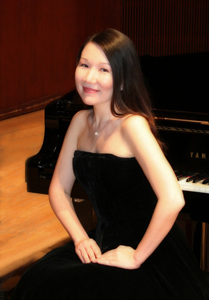Russian Poetry Nights: Marina Tsvetaeva
MIT Russian Connection presents an evening of poetry featuring the poems of Marina Tsvetaeva and a discussion of this poetess's colorful biography.
Marina Katseva will present the life of Marina Tsvetaeva based on a variety of sources, including new documents recently discovered in Tstvetaeva archives. Marina Khankhalaeva (vocal) and Irina Cherenkova (guitar) will perform songs based on Tsvetaeva’s lyrics.
Date: Tuesday, February 2, 2010
Time: 8:00 PM
Location: Coffeehouse Lounge: Stratton Student Center, 3rd floor
Note: this event will be exclusively Russian-spoken.
* * * * *
Marina Tsvetaeva is widely recognized as one of the greatest European poets of the last century. She was a turbulent woman fated to live in a turbulent world. Born in 1892 to a family of Russian intelligentsia, she lived through the cataclysms of three revolutions, Russian civil war and two World Wars, exile, neglect and persecutions. After her death in 1941, Tsvetaeva has been seen as a victim of her politicized time. Yet the poetry she wrote out of her despair, intellectually powerful and linguistically clear, was a triumph of genius. Her brilliant output has given her victory over time and gravity.
A poet of rare inspiration, intuition, and of masterful technique, Tsvetaeva also was a woman of immense moral statue. She used to say, “talent is nothing - the moral greatness is more important.” That is what her poetry bears: the bright imprint of the outstanding moral qualities of Tsevetaeva’s personality. She valued most courage and steadfastness, honor, nobility, magnanimity, unswerving devotion to family and friends, but above all to her craft. She wrote, “I never at any time gave a care for anything other than verse!”
Marina Tsvetaeva was fully recognized by her great contemporaries. Anna Akhmatova numbered her among a fellowship of equals that included Mandelshtam and Pasternak, who in turn called her the “golden, incomparable poet”. She also became a poetic star for the following generations of Russian poets. Almost all of them have paid her homage, even as disparate poets as Evtushenko and Brodsky. “No more passionate voice has ever sounded in Russian poetry of the 20th century,” wrote Joseph Brodsky of her. And yet, Western readers are only now starting to discover what Tsvetaeva’s great contemporaries recognized almost a century ago: that “she was one of the major poetic voices of the century,” “a remarkable poet and a fascinating woman,” “a poet whose vast imagination could encompass the truth of every human emotion.”
* * * * *
Marina Katseva came to the USA from Russia in 1990 and since then has been working at Boston University. Holding MS degree in art, she studied theory and history of arts in the Ukraine (The State Institute of Arts) and Moscow conservatory. For more than 20 years, she taught history of music at different Moscow colleges, including the State Lunacharsky’s Drama Institute. She also authored numerous articles on poetry and music for the international musical journals and encyclopedias, as well as broadcasts for TV and radio in Moscow and the USA. Since 1996, M. Katseva has been a docent at HUAM, and is currently involved with the MFA’s Learning & Public Programs as a museum guide for the Russian-speaking audience.
Katseva began to study Tsvetaeva’s work in 1980-s, as soon as the poet’s poems and prose were first published in the former Soviet Union, and met several of the surviving figures of Tsvetaeva’s past personally. M. Katseva has regarded this experience as central to her own development as a scientist, teacher and publicist.
Marina Khankhalaeva, mezzo-soprano, studied opera singing at Saint-Petersburg State Conservatory (class of Prof. E. Gorokhovskaya) and at the Academy of Young Singers of the Mariinsky Theatre in Saint-Petersburg, Russia. She has been a soloist in Buriatiya State Opera and Ballet Theatre. She has also been a soloist in the Ensemble “Rozhdestvo” at Petersburg-Concert and participated in international competitions. Marina recently earned her graduate degree from the Southern Methodist University in Dallas, TX (class of Prof. Dale Dietert).

 Marina Tsvetaeva
Marina Tsvetaeva 

